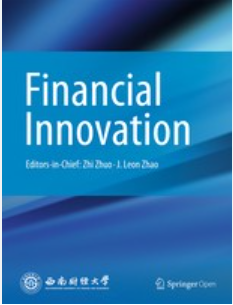Herding and investor sentiment after the cryptocurrency crash: evidence from Twitter and natural language processing
IF 7.2
1区 经济学
Q1 BUSINESS, FINANCE
引用次数: 0
Abstract
Although the 2022 cryptocurrency market crash prompted despair among investors, the rallying cry, “wagmi” (We’re all gonna make it.) emerged among cryptocurrency enthusiasts in the aftermath. Did cryptocurrency enthusiasts respond to this crash differently compared to traditional investors? Using natural language processing techniques applied to Twitter data, this study employed a difference-in-differences method to determine whether the cryptocurrency market crash had a differential effect on investor sentiment toward cryptocurrency enthusiasts relative to more traditional investors. The results indicate that the crash affected investor sentiment among cryptocurrency enthusiastic investors differently from traditional investors. In particular, cryptocurrency enthusiasts’ tweets became more neutral and, surprisingly, less negative. This result appears to be primarily driven by a deliberate, collectivist effort to promote positivity within the cryptocurrency community (“wagmi”). Considering the more nuanced emotional content of tweets, it appears that cryptocurrency enthusiasts expressed less joy and surprise in the aftermath of the cryptocurrency crash than traditional investors. Moreover, cryptocurrency enthusiasts tweeted more frequently after the cryptocurrency crash, with a relative increase in tweet frequency of approximately one tweet per day. An analysis of the specific textual content of tweets provides evidence of herding behavior among cryptocurrency enthusiasts.加密货币暴跌后的羊群效应和投资者情绪:推特和自然语言处理提供的证据
尽管 2022 年的加密货币市场崩盘让投资者感到绝望,但在崩盘之后,加密货币爱好者们却发出了 "wagmi"(我们都会成功的)的集结号。与传统投资者相比,加密货币爱好者对这次暴跌的反应是否有所不同?本研究将自然语言处理技术应用于 Twitter 数据,采用差异法确定加密货币市场暴跌是否对投资者对加密货币爱好者的情绪产生了不同于传统投资者的影响。结果表明,暴跌对加密货币狂热投资者与传统投资者情绪的影响不同。特别是,加密货币爱好者的推文变得更加中性,令人惊讶的是,负面情绪更少。造成这一结果的主要原因似乎是加密货币社区("wagmi")内部为提升积极性而刻意采取的集体主义努力。考虑到推文中更细微的情感内容,加密货币爱好者在加密货币暴跌后所表达的喜悦和惊讶似乎少于传统投资者。此外,加密货币爱好者在加密货币暴跌后发布推文的频率更高,每天发布推文的频率相对增加了约一条。对推文具体文本内容的分析为加密货币爱好者的羊群行为提供了证据。
本文章由计算机程序翻译,如有差异,请以英文原文为准。
求助全文
约1分钟内获得全文
求助全文
来源期刊

Financial Innovation
Economics, Econometrics and Finance-Finance
CiteScore
11.40
自引率
11.90%
发文量
95
审稿时长
5 weeks
期刊介绍:
Financial Innovation (FIN), a Springer OA journal sponsored by Southwestern University of Finance and Economics, serves as a global academic platform for sharing research findings in all aspects of financial innovation during the electronic business era. It facilitates interactions among researchers, policymakers, and practitioners, focusing on new financial instruments, technologies, markets, and institutions. Emphasizing emerging financial products enabled by disruptive technologies, FIN publishes high-quality academic and practical papers. The journal is peer-reviewed, indexed in SSCI, Scopus, Google Scholar, CNKI, CQVIP, and more.
 求助内容:
求助内容: 应助结果提醒方式:
应助结果提醒方式:


